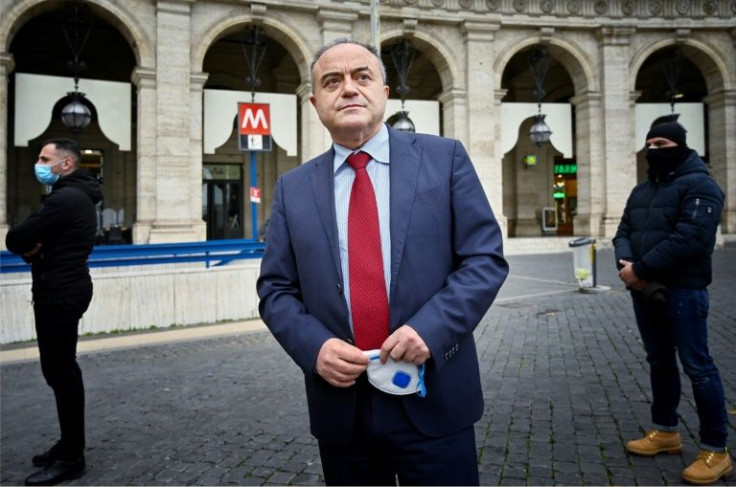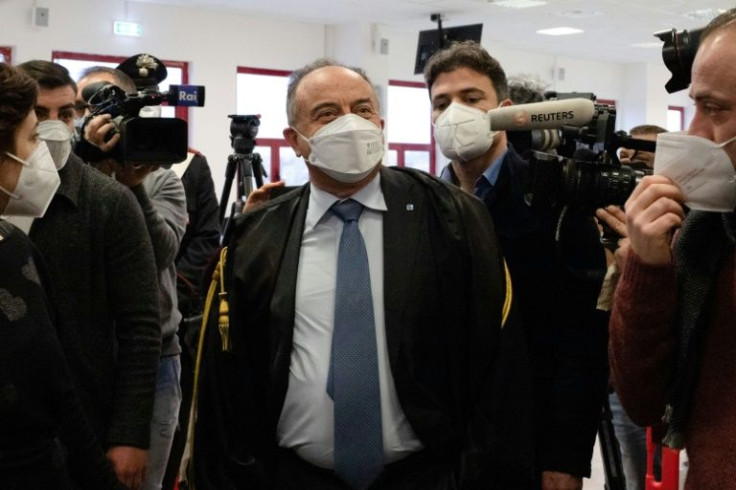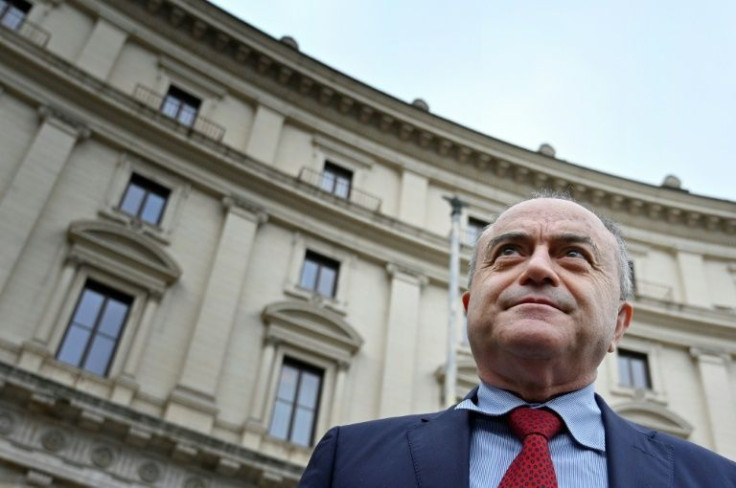When Italy's Anti-mafia Prosecutor Listens, Testimonies Flow
One day a week, Italy's most prominent anti-mafia prosecutor Nicola Gratteri receives people at his office to listen to their grievances.
In Calabria, the poor, southern region home to the feared 'Ndrangheta mafia, issues facing locals include threats, intimidation, extortion, loan sharks and even bloodshed at the hands of organised crime.
Those waiting their turn for 10 minutes with Gratteri are Calabrians who, until recently, had considered the state to be "very far away", the prosecuting magistrate told AFP in an interview.
"All the downtrodden people who have suffered humiliation, who have been threatened, the left-behind of the earth come to talk," said Gratteri, who has himself lived under state protection for over 30 years.
"They cry, they despair... they get emotional because they're talking with the prosecutor. Then they take heart because they see that we're serious."

For decades, the growing influence of the 'Ndrangheta, helped by close ties with the world of politics and business, was underestimated or dismissed by the state -- too weak, inefficient and corrupt to take on the crime syndicate that has spread throughout Italy and abroad.
Since becoming public prosecutor of Catanzaro province in 2016, making him responsible for anti-mafia proceedings in three-quarters of Calabria, Gratteri has been hailed as the region's last hope by many, though criticised by some as overzealous and fame-seeking.
Either way, he has been determined to prove the 'Ndrangheta is not invincible.

The latest high-profile example is the ongoing "maxi-trial" against 355 alleged mafia members and associates, held in the nearby city of Lamezia Terme, the biggest such trial in three decades.
While the trial is far from over, the prosecution scored an early win this month in a lower court.
Guilty verdicts were handed to 70 out of 91 defendants in fast-track proceedings, including top mafia operatives who received the maximum sentence of 20 years.
An unprecedented 58 'Ndrangheta members turned state witnesses have taken the stand to divulge the secrets of the organised crime group, considered Italy's most powerful.
But, as in all proceedings against the 'Ndrangheta, most victims prove unwilling to denounce the group.

It is here that Gratteri's weekly ritual comes in.
The reason Calabrians do not talk to the authorities is not because of the code of silence, but because "they don't know who to talk to," said Gratteri.
There has been little to endear Calabrians to their government over the years.
Infrastructure projects go unfinished, the health system is near collapse and one of Europe's highest regional unemployment rates sends the area's best and brightest north to find work.
Since 1991, 110 municipal councils in Calabria have been dissolved after being infiltrated by the mafia, 61 of them twice.
The council in Lamezia Terme, the region's third-largest city and seat of the trial, has been dissolved three times, most recently in 2017.
In recent decades, the 'Ndrangheta quietly expanded as attention shifted to Sicily's Cosa Nostra following the 1992 killings of anti-mafia prosecutors Giovanni Falcone and Paolo Borsellino.
Helped by its white-collar ties, the 'Ndrangheta now penetrates every sector of Calabria's economy, experts say, including construction and public contracts, money-lending, hospitals, agriculture, tourism and more.
Gratteri estimates that nine percent of Calabria's gross domestic product is stripped away by the 'Ndrangheta, whose near-monopoly on cocaine entering Europe and other lucrative activities such as rigging public tenders and fraud reap tens of billions of euros each year.
Its criminal proceeds, along with its infiltration of the legal economy at home and abroad, are worth 50 billion euros ($56 billion) annually, he estimates.
Against this pervasive threat, Gratteri needs the public's cooperation, which he said has been more forthcoming since the trial, with ordinary people sharing useful information.
"Today, people are talking more because they trust us more. People see the results and so they are encouraged, they consider us credible," he said.
"People can't imagine that there is someone who will take charge of their problems. And I like to take charge of their problems."
© Copyright AFP 2024. All rights reserved.




















